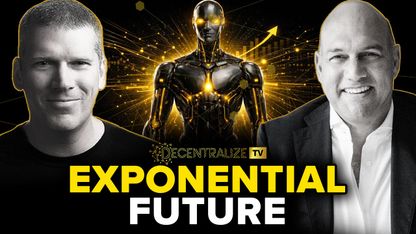
"This is a phenomenon of longstanding focus," according to Patricia Bauer of Emory University, a recognized expert in memory development. "It demands our attention because it’s a paradox: Very young children show evidence of memory for events in their lives, yet as adults, we have relatively few of these memories."
So, where did all the memories go?
In an article that appeared in Nautilus, scientists are finally getting to the bottom of what happens to the brain when we forget our first years on Earth, with new research suggesting that our earliest memories have faded away to make room for new ones.
From when we were born to our early teens, the brain is still setting up its necessary circuitry and thickening its electrical pathways with fatty tissue to make them work better. As the brain undergoes what can be called as a "massive surge of growth," the brain builds even more new bridges that connect it with neurons – in fact, children have far more links between neuron than adults. This growth is invaluable, especially in children: It allows them to adapt and learn much faster. This excess brain matter is what formed by our genes and experiences growing up, for use to be suited in a particular environment.
However, this surge in learning isn't all that, as Bauer and her colleagues learned. While a child's brain undergoes rapid development, the network of brain regions that create memories are still under construction and aren't as capable of forming memories as it will be in adulthood. As a result, long-term memories during the first three years of life are the least stable memories that a person creates, and are bound to disappear as we grow older.
In a separate study, neuroscientist Paul Frankland his colleagues further explained why our early childhood memories disintegrate. A few years ago, Frankland, together with his Sheena Frankland – his wife and a fellow neuroscientist, noticed that mice fared worse on particular memory tests after living in a cage with a running wheel.
The couple knew that exercising in a running wheel encourages neurogenesis — the growth of new neurons that help us learn and remember. However, Karl Deisseroth of Stanford University and his colleagues suggested neurogenesis might also require a level of forgetting. Since the brain's hippocampus can hold only so many neurons, it must discard older ones to make way for newer neurons. Given this hypothesis, new brain cells might crowd other neurons – or even replace them. This, in turn, can break or reconfigure the small connections that hold memories, explaining the phenomenon known as childhood amnesia.
The Franklands decided to test this further by moving infant and adult mice from plastic shoebox-sized cages to larger metal ones they had never seen before. The researchers zapped the rodents’ feet with mild electric shocks inside the metal cages. Adult mice associated the metal cages with shock and stiffened with fear when they were returned to these containers. Baby mice, on the other hand, forgot about this connection after one day and were relaxed inside the shock cages. Similar results were also shown after adults ran on a hamster wheel, thereby experiencing neurogenesis and forgetting the shock that they experienced.
Making the most of the time that they will forget
Since children will not remember what happened to them before our fourth birthday, parents – and the family as a whole – could take steps to make the most out of this soon-to-be-forgotten time in their lives.
Parents can take precious moments – like the time the baby first walked or ate solid food – in photos. They can also record the baby's first words. They can keep a journal of baby's milestones, like their first haircut, the first trip to the zoo, his first reaction to when another baby was born into the family, among others. They can also keep the baby's first lock of hair, his first tooth, and other important signs of development.
It doesn't seem like much right now. But it will matter a lot of decades after – when the memories bring thoughts of a happy home to warm the heart and chase the blues away.
Sources include:
Please contact us for more information.























